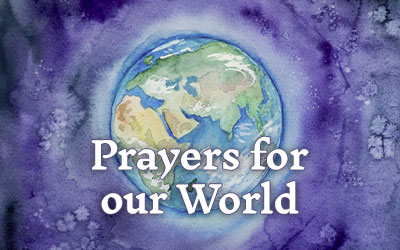Afghanistan: Women Activists Fear Return Of Repressions

Khalida Khorsand, a 35-year-old rights activist from the western Afghan city of Herat, is skeptical about Taliban claims that it has dispensed with its strict rules against girls' education and women working.
The militant Islamic group made the declaration in the midst of recent peace talks with U.S. envoy Zalmay Khalilzad aimed at bringing an end to the long U.S. military presence in Afghanistan.
But Khorsand still remembers the notorious repressions under Taliban rule as a teenager in the western city of Herat when she risked the death penalty to study literature in a class disguised as a women's sewing group.
"After nearly 18 years without the Taliban in power, we now see that the Taliban are coming back in Afghanistan and there haven't been big changes for women's lives -- especially in rural areas," says Khorsand, who has dedicated much of her life since 2001 to advancing women's rights in western Afghanistan.
Even without the Taliban in power in Herat, Khorsand says, many hard-fought gains for women since the collapse of the Taliban regime already are under threat.
She attributes that situation to what she calls "a Taliban way of thinking" by many Afghans and a proliferation of unregistered religious schools in Herat teaching "radical Islam" to as many as 50,000 young people.
If the Taliban gets a role in the Afghan government as part of a peace deal, as Khorsand expects, she fears a floodgate will be opened for resurgent "radical Islamists" in Herat.
"I don't know why this has been allowed to happen under the current government of Afghanistan since 2014," Khorsand laments. "They are not paying attention to the rise of fundamentalists and radical groups in Herat.
"Now the city has become a safe haven for the radical groups that support the ideology of the Taliban," Khorsand says. "The fundamentalist groups in Herat are very organized and have a lot of money. They take the young people into madrasahs and teach to them the principles of the Taliban, and they are having an enormous impact on the young generation."
Those groups already have gained backing from municipal authorities for an unofficial ban on live musical performances in Herat and for a ban on celebrating Valentine's Day -- with both practices being declared "unIslamic."
In rural areas of Herat Province, where Khorsand worked for years to help women who are victims of domestic violence, Khorsand says she has seen disturbing signs of support for the punishments doled out by the Taliban under its strict enforcement of Islamic Shari'a law -- amputating the hands of thieves, publicly flogging people for drinking alcohol, and stoning to death those who engage in adultery.
Students at Herat's madrasahs deny being radical Islamists. But they also support a return to the prohibitions and punishments of the Taliban era.
"Allah says cut off the hands of a male thief and a female thief," says Jan Agha Jami, a 21-year-old at the Fakhr al-Madares madrasah in Herat. "When men and women commit adultery, whip them if they are single. If they are married, they should be stoned, and the Koran's rulings should be implemented in public.
"Music concerts are absurd because they are forbidden," Jami tells RFE/RL. "Music is bad for the mind, memory, and even human psyche. When a girl performs in front of strangers, the whole society is corrupted."
Reflecting on the growing popularity of such beliefs in Herat, Khorsand says "it makes no difference for women in Afghanistan if the Taliban exists or doesn't exist."
"The Taliban's way of thinking about women is the way many people are thinking in Afghanistan," she says. "A lot of Afghans have traditional ways of thinking and they believe the talk of the Taliban. Unfortunately, much of their way of thinking is against the rights of women."
Move Forward, Step Back
To be sure, Khorsand says there have been important advances for Afghan women since 2001 -- including language in the Afghan Constitution that enshrines the right to education and to work.
Women are members of parliament and can be seen on television, competing in sports, and performing in concerts in Kabul.
But the Afghan government since the collapse of the Taliban regime has included many conservative Islamists and former warlords whose attitudes about women are similar to the Taliban.
Sima Simar, the head of Afghanistan's Independent Human Rights Commission, says the gains for women since 2001 can easily be overturned and have rarely been implemented in rural areas where most Afghans live.
The 2018 Women, Peace, and Security Index by Georgetown University and the Peace Research Institute of Oslo ranks Afghanistan as the second-worst place in the world to be a woman. Only Syria was ranked worse.
That study notes that only 16 percent of Afghanistan's workforce is female and that half of all Afghan women have four years or less of education.
UNICEF, the United Nations children's agency, says only half of school-aged Afghan girls now go to school, and that only one out of five girls under 15 are literate.
Nearly two out of three Afghan girls are married when they are teenagers or younger. On average, they are sent by their parents into arranged marriages between the ages of 15 and 16.
Most imprisoned Afghan women have been jailed for so-called "morality crimes," such as leaving an abusive husband or demanding to marry a man of their own choosing.
Pray: That the steady advances being made towards improving womens rights will not be overturned.
Pray: That boys and girls will get equal access to good education, especially in the rural areas.
Pray: For improved employment opportunities for women.
Pray: For those who work with and speak up for the oppressed women and children in Afghan society - that their voice will be heard and acted upon.


